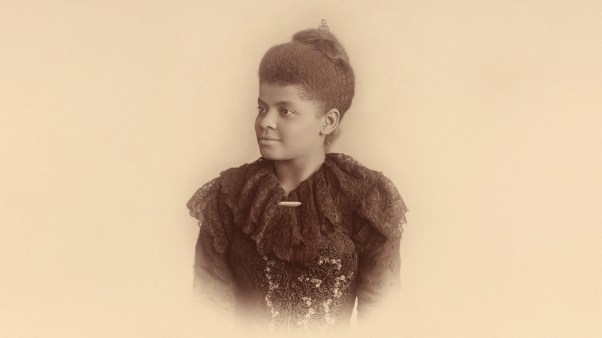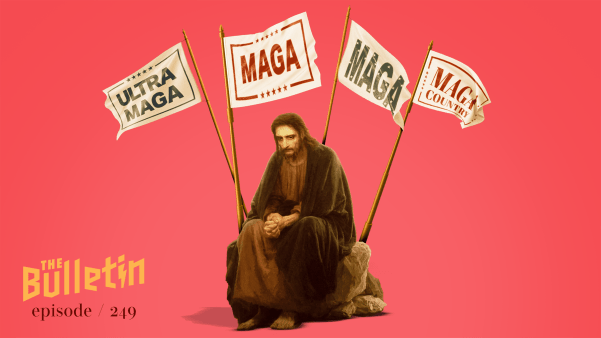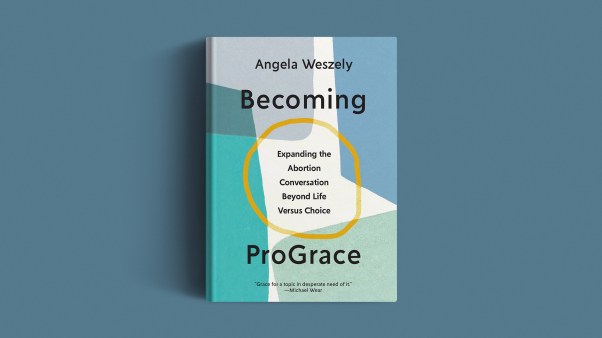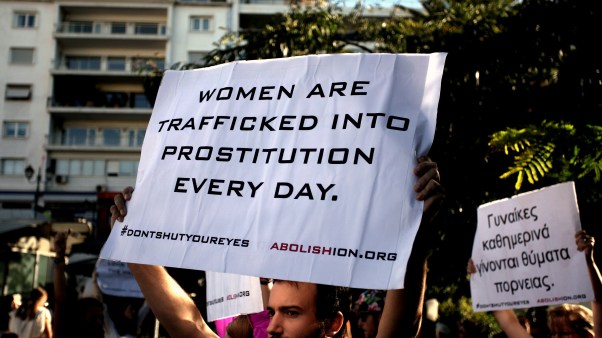 Arthur Holmes, author of All Truth is Gods Truth who promoted the idea of integrating faith and learning, died October 8. The Wheaton College philosophy professor authored several books related to faith and learning, including The Idea of a Christian College and Building the Christian Academy. He was born in 1924 and taught at Wheaton for more than 40 years, according to a blog post by David Osielski.
Arthur Holmes, author of All Truth is Gods Truth who promoted the idea of integrating faith and learning, died October 8. The Wheaton College philosophy professor authored several books related to faith and learning, including The Idea of a Christian College and Building the Christian Academy. He was born in 1924 and taught at Wheaton for more than 40 years, according to a blog post by David Osielski.
Throughout his writings and career, Holmes emphasized that, indeed, “all truth is God’s truth.” His desire was for Christians to not shy away from the difficult questions that may arise from whatever subject of academic study they choose. With a firm belief that any truth they find can be reconciled with their faith, Holmes challenged educators and Christians in academia to grapple with what they are interested in, noting that a strong faith can handle some turbulence while coming to a better understanding of God’s creation.
In reflection on his career, it is obvious he accomplished the goals he set forth for himself as a young teacher: he encouraged faith and learning in students, he countered the anti-intellectualism he found in the American church, and he helped prepare a great many students and Christian intellectuals for the various ranks of academia.
Wheaton’s archives has collected some of Holmes’ chapel addresses and his papers are housed in the college’s special collections.
So you are a little weary of reading Richard Dawkins, Sam Harris, Christopher Hitchens, and such? Take a break with Lucretius—not an atheist, strictly speaking, but a first-century B.C. materialist forerunner of Dawkins & Co.
* * *
 This weekend’s Values Voters Summit brought together GOP presidential hopefuls with social conservatives, also featuring a presidential straw poll.Going into the weekend, the straw poll was expected to be a harbinger of which candidates conservative Christian activists were backing. The winner, however, was not Herman Cain, Michele Bachmann, Rick Perry, or Rick Santorum. Instead, libertarian-leaning Ron Paul was this year’s surprise winner with 37 percent of the 1,983 votes. (Read Christianity Today‘s interview with Ron Paul.)Family Research Council (FRC) president Tony Perkins dismissed the results as ballot stuffing. At a press conference following the vote, Perkins said that 600 people registered Saturday, stayed for Ron Paul’s speech, voted, and then left. Ron Paul received 732 votes. “You do the math,” Perkins said.Straw polls are rarely representative of voters; they measure campaign’s ability to organize. To register for the conference, each participant needed to pay . Other campaigns would have also mobilized voters to the confab. Perkins cautioned reading too much into the results. “Let me just take you back four years to this event, when we had a straw poll. Mitt Romney won that straw poll,” he said.Perkins was not always so down on the VVS straw poll. Just a few days earlier, Perkins touted the poll as an important test of candidate strength in a Washington Times op-ed. He did not cite the winner—Romney–but the “strong finish” by Mike Huckabee.“The Values Voter Summit will test each candidate’s ability to motivate its base to get out and cast a vote in the summit’s straw poll,” Perkins said. “In 2007, Gov. Mike Huckabee’s strong finish at the straw poll helped push him into the top tier of candidates right before a big win at the Iowa caucuses.” Texas Rep. Paul has been reaching out to social conservatives, though many Christian conservative activists consider him part of the libertarian wings of conservatism. When the FRC toured Iowa this summer, Paul was one of the few candidates to not participate in their events. Last year, he was one of only two re-elected GOP congressmen to vote for the elimination of “Don’t Ask Don’t Tell.”“Most of the GOP candidates are tracking with social conservative issues,” Perkins told Politico in June. “I think Ron Paul is the only one with a libertarian bent. Most are sympathetic to and understand of those issues.” In August, he said that all the Republican candidates were acceptable to politically conservative evangelicals. Paul, said Perkins, must reach out to social conservatives in order to win.Cain (24 percent) and Santorum (16 percent) came in second and third, respectively. Bachmann and Perry were further behind, tying with 8 percent of the vote. Values Voters Summit voters appeared more interested in Bachmann as a VP candidate. Ron Paul, Bachmann, Cain, and Marco Rubio each received about 10 percent of the vice presidential straw poll.
This weekend’s Values Voters Summit brought together GOP presidential hopefuls with social conservatives, also featuring a presidential straw poll.Going into the weekend, the straw poll was expected to be a harbinger of which candidates conservative Christian activists were backing. The winner, however, was not Herman Cain, Michele Bachmann, Rick Perry, or Rick Santorum. Instead, libertarian-leaning Ron Paul was this year’s surprise winner with 37 percent of the 1,983 votes. (Read Christianity Today‘s interview with Ron Paul.)Family Research Council (FRC) president Tony Perkins dismissed the results as ballot stuffing. At a press conference following the vote, Perkins said that 600 people registered Saturday, stayed for Ron Paul’s speech, voted, and then left. Ron Paul received 732 votes. “You do the math,” Perkins said.Straw polls are rarely representative of voters; they measure campaign’s ability to organize. To register for the conference, each participant needed to pay . Other campaigns would have also mobilized voters to the confab. Perkins cautioned reading too much into the results. “Let me just take you back four years to this event, when we had a straw poll. Mitt Romney won that straw poll,” he said.Perkins was not always so down on the VVS straw poll. Just a few days earlier, Perkins touted the poll as an important test of candidate strength in a Washington Times op-ed. He did not cite the winner—Romney–but the “strong finish” by Mike Huckabee.“The Values Voter Summit will test each candidate’s ability to motivate its base to get out and cast a vote in the summit’s straw poll,” Perkins said. “In 2007, Gov. Mike Huckabee’s strong finish at the straw poll helped push him into the top tier of candidates right before a big win at the Iowa caucuses.” Texas Rep. Paul has been reaching out to social conservatives, though many Christian conservative activists consider him part of the libertarian wings of conservatism. When the FRC toured Iowa this summer, Paul was one of the few candidates to not participate in their events. Last year, he was one of only two re-elected GOP congressmen to vote for the elimination of “Don’t Ask Don’t Tell.”“Most of the GOP candidates are tracking with social conservative issues,” Perkins told Politico in June. “I think Ron Paul is the only one with a libertarian bent. Most are sympathetic to and understand of those issues.” In August, he said that all the Republican candidates were acceptable to politically conservative evangelicals. Paul, said Perkins, must reach out to social conservatives in order to win.Cain (24 percent) and Santorum (16 percent) came in second and third, respectively. Bachmann and Perry were further behind, tying with 8 percent of the vote. Values Voters Summit voters appeared more interested in Bachmann as a VP candidate. Ron Paul, Bachmann, Cain, and Marco Rubio each received about 10 percent of the vice presidential straw poll.
For bright young Christians who are engaging the atheist boomlet of 2007 and for whom existentialism is merely one of many isms in the last century’s garbage dump, it would be instructive to read this novel, first published in French in 1938.
* * *

There’s a Catholic argument that blames the Reformation for the rise of atheism. Aha! That’s where the trouble started. Turner offers a subtler version, showing how developments within Christendom prepared the ground.
* * *
 This weekend’s Values Voters Summit brought together GOP presidential hopefuls with social conservatives, also featuring a presidential straw poll.Going into the weekend, the straw poll was expected to be a harbinger of which candidates conservative Christian activists were backing. The winner, however, was not Herman Cain, Michele Bachmann, Rick Perry, or Rick Santorum. Instead, libertarian-leaning Ron Paul was this year’s surprise winner with 37 percent of the 1,983 votes. (Read Christianity Today‘s interview with Ron Paul.)Family Research Council (FRC) president Tony Perkins dismissed the results as ballot stuffing. At a press conference following the vote, Perkins said that 600 people registered Saturday, stayed for Ron Paul’s speech, voted, and then left. Ron Paul received 732 votes. “You do the math,” Perkins said.Straw polls are rarely representative of voters; they measure campaign’s ability to organize. To register for the conference, each participant needed to pay . Other campaigns would have also mobilized voters to the confab. Perkins cautioned reading too much into the results. “Let me just take you back four years to this event, when we had a straw poll. Mitt Romney won that straw poll,” he said.Perkins was not always so down on the VVS straw poll. Just a few days earlier, Perkins touted the poll as an important test of candidate strength in a Washington Times op-ed. He did not cite the winner—Romney–but the “strong finish” by Mike Huckabee.“The Values Voter Summit will test each candidate’s ability to motivate its base to get out and cast a vote in the summit’s straw poll,” Perkins said. “In 2007, Gov. Mike Huckabee’s strong finish at the straw poll helped push him into the top tier of candidates right before a big win at the Iowa caucuses.” Texas Rep. Paul has been reaching out to social conservatives, though many Christian conservative activists consider him part of the libertarian wings of conservatism. When the FRC toured Iowa this summer, Paul was one of the few candidates to not participate in their events. Last year, he was one of only two re-elected GOP congressmen to vote for the elimination of “Don’t Ask Don’t Tell.”“Most of the GOP candidates are tracking with social conservative issues,” Perkins told Politico in June. “I think Ron Paul is the only one with a libertarian bent. Most are sympathetic to and understand of those issues.” In August, he said that all the Republican candidates were acceptable to politically conservative evangelicals. Paul, said Perkins, must reach out to social conservatives in order to win.Cain (24 percent) and Santorum (16 percent) came in second and third, respectively. Bachmann and Perry were further behind, tying with 8 percent of the vote. Values Voters Summit voters appeared more interested in Bachmann as a VP candidate. Ron Paul, Bachmann, Cain, and Marco Rubio each received about 10 percent of the vice presidential straw poll.
This weekend’s Values Voters Summit brought together GOP presidential hopefuls with social conservatives, also featuring a presidential straw poll.Going into the weekend, the straw poll was expected to be a harbinger of which candidates conservative Christian activists were backing. The winner, however, was not Herman Cain, Michele Bachmann, Rick Perry, or Rick Santorum. Instead, libertarian-leaning Ron Paul was this year’s surprise winner with 37 percent of the 1,983 votes. (Read Christianity Today‘s interview with Ron Paul.)Family Research Council (FRC) president Tony Perkins dismissed the results as ballot stuffing. At a press conference following the vote, Perkins said that 600 people registered Saturday, stayed for Ron Paul’s speech, voted, and then left. Ron Paul received 732 votes. “You do the math,” Perkins said.Straw polls are rarely representative of voters; they measure campaign’s ability to organize. To register for the conference, each participant needed to pay . Other campaigns would have also mobilized voters to the confab. Perkins cautioned reading too much into the results. “Let me just take you back four years to this event, when we had a straw poll. Mitt Romney won that straw poll,” he said.Perkins was not always so down on the VVS straw poll. Just a few days earlier, Perkins touted the poll as an important test of candidate strength in a Washington Times op-ed. He did not cite the winner—Romney–but the “strong finish” by Mike Huckabee.“The Values Voter Summit will test each candidate’s ability to motivate its base to get out and cast a vote in the summit’s straw poll,” Perkins said. “In 2007, Gov. Mike Huckabee’s strong finish at the straw poll helped push him into the top tier of candidates right before a big win at the Iowa caucuses.” Texas Rep. Paul has been reaching out to social conservatives, though many Christian conservative activists consider him part of the libertarian wings of conservatism. When the FRC toured Iowa this summer, Paul was one of the few candidates to not participate in their events. Last year, he was one of only two re-elected GOP congressmen to vote for the elimination of “Don’t Ask Don’t Tell.”“Most of the GOP candidates are tracking with social conservative issues,” Perkins told Politico in June. “I think Ron Paul is the only one with a libertarian bent. Most are sympathetic to and understand of those issues.” In August, he said that all the Republican candidates were acceptable to politically conservative evangelicals. Paul, said Perkins, must reach out to social conservatives in order to win.Cain (24 percent) and Santorum (16 percent) came in second and third, respectively. Bachmann and Perry were further behind, tying with 8 percent of the vote. Values Voters Summit voters appeared more interested in Bachmann as a VP candidate. Ron Paul, Bachmann, Cain, and Marco Rubio each received about 10 percent of the vice presidential straw poll.
Larsen tells the fascinating story of Victorians who renounced their faith, campaigned vigorously for atheism—in print and on the speaker’s platform—and then reconverted to Christianity.
* * *
 As Egypt plans to hold parliamentary elections November 28 and rebuild its government following the events of the Arab Spring, a peaceful Christian-led protest turned into a bloody scene Sunday, leaving 25 to 35 people dead and 300 to perhaps 500 injured. The dead are believed to be mostly Christians.Videos have shown that military police went to stop the protest, shooting, releasing tear gas, beating people with batons, and running people over with their trucks. Protestors maintain they had no weapons and were attacked by police and thugs, although early reports from Egypt’s liberal media stated the protestors started the brutality and army personnel were killed (no army members were listed in the fatalities).Coptic Christians have led protests in the months following the Arab Spring. Egyptian believers—the country’s minority at 10 percent—have faced hindrances in society. After President Hosni Mubarak stepped down, more attacks against churches and Christian communities have occurred without repercussion, and some Islamists have been vocal about wanting Copts to have different rights than Muslims under the new government.Coptic Christians have been frustrated with the repeated attacks and lack of justice, and with the intolerance and poor treatment they encounter because they are not Muslims. What happened on Sunday was not the first time the military and others have used force against a peaceful Coptic protest, although it was the most violent. Last week, a sit-in was disrupted when the military fired their guns in order to chase protestors away from the National Television and Radio building (Maspero).That protest was led by the Maspero Youth Union and Copts Without Borders (which dropped out during the march and did not continue to the sit-in). The Maspero Youth Union is made up of Christians who are trying to stop religious persecution by getting involved in politics instead of trying to “change things simply by praying and singing,” as Fadi Philip told blogger Jayson Casper. There are Muslim members within the group as well.Maspero Youth Union has been leading protests for months in order to improve the lives of Christians. They have held sit-ins in order to get the government to implement new policies, such as allowing Christians to open new churches and punishing people who have incited violence against Christians. Casper blogged about what he saw when he first arrived at the metro station close to Tahrir Square on Sunday night. He ran into a group of shaken people whom he believes were Copts: “This group stated with vehemence they had been attacked by the army, emphasizing it was the army, and not simple thugs. People had been shot and armored vehicles had run over protestors as they swerved through the crowd. Some claimed there were snipers. Confusion reigned, and it was hard to know what was happening.”He was unable to get too close to the scene of the protest, but wrote that “it was impossible to tell Muslim from Christian, protestor from bystander from ‘thug.’ Who was committing violence, and who was suffering it, was impossible to say.”Casper was able to talk with a member of the Maspero Youth Union, who said that 10,000 Copts and Muslims had been interrupted during their march by thugs he believed the army had sent. The man said the plan was to leave at 8 p.m. and not engage in a sit-in, but they were attacked “immediately” after arriving at Maspero. At least one member of the Maspero Youth Union, Michael Mossad, was killed.On his Facebook page, Prime Minister Essam Sharaf wrote, “What took place was not a confrontation between Muslims and Christians but an attempt to create chaos and ignite sectarian sedition. . . . I urge all children of the nation who are keen for its future to answer those who call for sectarian sedition. This is a fire which will consume us all, without distinction.” Coptic and Muslim leaders have been called to meet together by the “Family House,” an anti-sectarian project that was started after the New Year’s Eve church bombing in Alexandria. The meeting will attempt to create a plan to address the event and its aftermath.Meanwhile, thousands mourn the victims and protest the military’s actions. Through Twitter, activists and journalists claim that hospitals are trying to cover up the truth of what happened by refusing to release the victims’ bodies to their families until the families sign papers stating the victim died from fractures or burns, not gunshots. Pope Shenouda III of the Coptic Christians announced that Tuesday would mark the beginning of three days of mourning, praying, and fasting as funerals begin; these are expected to spark more protests.Editor’s Note: This story has been updated as more information has come in.Copyright © 2011 Christianity Today. Click for reprint information.Related Elsewhere:Previous coverage of Egypt includes:
As Egypt plans to hold parliamentary elections November 28 and rebuild its government following the events of the Arab Spring, a peaceful Christian-led protest turned into a bloody scene Sunday, leaving 25 to 35 people dead and 300 to perhaps 500 injured. The dead are believed to be mostly Christians.Videos have shown that military police went to stop the protest, shooting, releasing tear gas, beating people with batons, and running people over with their trucks. Protestors maintain they had no weapons and were attacked by police and thugs, although early reports from Egypt’s liberal media stated the protestors started the brutality and army personnel were killed (no army members were listed in the fatalities).Coptic Christians have led protests in the months following the Arab Spring. Egyptian believers—the country’s minority at 10 percent—have faced hindrances in society. After President Hosni Mubarak stepped down, more attacks against churches and Christian communities have occurred without repercussion, and some Islamists have been vocal about wanting Copts to have different rights than Muslims under the new government.Coptic Christians have been frustrated with the repeated attacks and lack of justice, and with the intolerance and poor treatment they encounter because they are not Muslims. What happened on Sunday was not the first time the military and others have used force against a peaceful Coptic protest, although it was the most violent. Last week, a sit-in was disrupted when the military fired their guns in order to chase protestors away from the National Television and Radio building (Maspero).That protest was led by the Maspero Youth Union and Copts Without Borders (which dropped out during the march and did not continue to the sit-in). The Maspero Youth Union is made up of Christians who are trying to stop religious persecution by getting involved in politics instead of trying to “change things simply by praying and singing,” as Fadi Philip told blogger Jayson Casper. There are Muslim members within the group as well.Maspero Youth Union has been leading protests for months in order to improve the lives of Christians. They have held sit-ins in order to get the government to implement new policies, such as allowing Christians to open new churches and punishing people who have incited violence against Christians. Casper blogged about what he saw when he first arrived at the metro station close to Tahrir Square on Sunday night. He ran into a group of shaken people whom he believes were Copts: “This group stated with vehemence they had been attacked by the army, emphasizing it was the army, and not simple thugs. People had been shot and armored vehicles had run over protestors as they swerved through the crowd. Some claimed there were snipers. Confusion reigned, and it was hard to know what was happening.”He was unable to get too close to the scene of the protest, but wrote that “it was impossible to tell Muslim from Christian, protestor from bystander from ‘thug.’ Who was committing violence, and who was suffering it, was impossible to say.”Casper was able to talk with a member of the Maspero Youth Union, who said that 10,000 Copts and Muslims had been interrupted during their march by thugs he believed the army had sent. The man said the plan was to leave at 8 p.m. and not engage in a sit-in, but they were attacked “immediately” after arriving at Maspero. At least one member of the Maspero Youth Union, Michael Mossad, was killed.On his Facebook page, Prime Minister Essam Sharaf wrote, “What took place was not a confrontation between Muslims and Christians but an attempt to create chaos and ignite sectarian sedition. . . . I urge all children of the nation who are keen for its future to answer those who call for sectarian sedition. This is a fire which will consume us all, without distinction.” Coptic and Muslim leaders have been called to meet together by the “Family House,” an anti-sectarian project that was started after the New Year’s Eve church bombing in Alexandria. The meeting will attempt to create a plan to address the event and its aftermath.Meanwhile, thousands mourn the victims and protest the military’s actions. Through Twitter, activists and journalists claim that hospitals are trying to cover up the truth of what happened by refusing to release the victims’ bodies to their families until the families sign papers stating the victim died from fractures or burns, not gunshots. Pope Shenouda III of the Coptic Christians announced that Tuesday would mark the beginning of three days of mourning, praying, and fasting as funerals begin; these are expected to spark more protests.Editor’s Note: This story has been updated as more information has come in.Copyright © 2011 Christianity Today. Click for reprint information.Related Elsewhere:Previous coverage of Egypt includes:
Behind Egypt’s Revolution | Away from news cameras, Christian, Muslim youth rediscover common ground. (March 7, 2011)
Do Egypt’s Evangelicals Get Along with the Coptic Orthodox? | More than they used to, say observers and insiders. (February 14, 2011)
Egypt’s Christians After Mubarak | They were protesting a church attack when the Tahrir Square demonstrations began. Political change likely won’t undo deep tensions with Muslims. (February 11, 2011)
This Atheists R Us compilation differs markedly in tone from Hitchens and Dawkins. Excellent fare for Christian small groups whose members are genuinely interested in the arguments raised by atheists.
* * *
Copyright © 2007 Christianity Today. Click for reprint information.
Related elsewhere:
See our books section for more reviews and articles.
Other Christianity Today articles on atheists and religion include:
“Is Christianity Good for the World?” | Christopher Hitchens and Douglas Wilson debate. (May 8, 2007)
The New Intolerance | Fear mongering among elite atheists is not a pretty sight. A Christianity Today editorial (January 25, 2007)
The Twilight of Atheism | Why this once exciting and ‘liberating’ philosophy failed to capture the world’s imagination. (March 2005)
Pledging to Fight | Atheist says battle over ‘under God’ has just begun. (August 1, 2004)
Forced by Logic | It took philosophy and a friend to convince this atheist (June 1, 2003)
Russian Intellectuals Try to Revive Atheism | The Moscow Society of Atheists says its ideology has fallen out of fashion (January 1, 2001)
The Know-Nothing Party | How should Christians respond to ill-informed attacks? (Books & Culture, February 5, 2007)
The Trials of Being Agnostic | A conversation with skeptic Wendy Kaminer. (Books & Culture, January 1, 2000)










